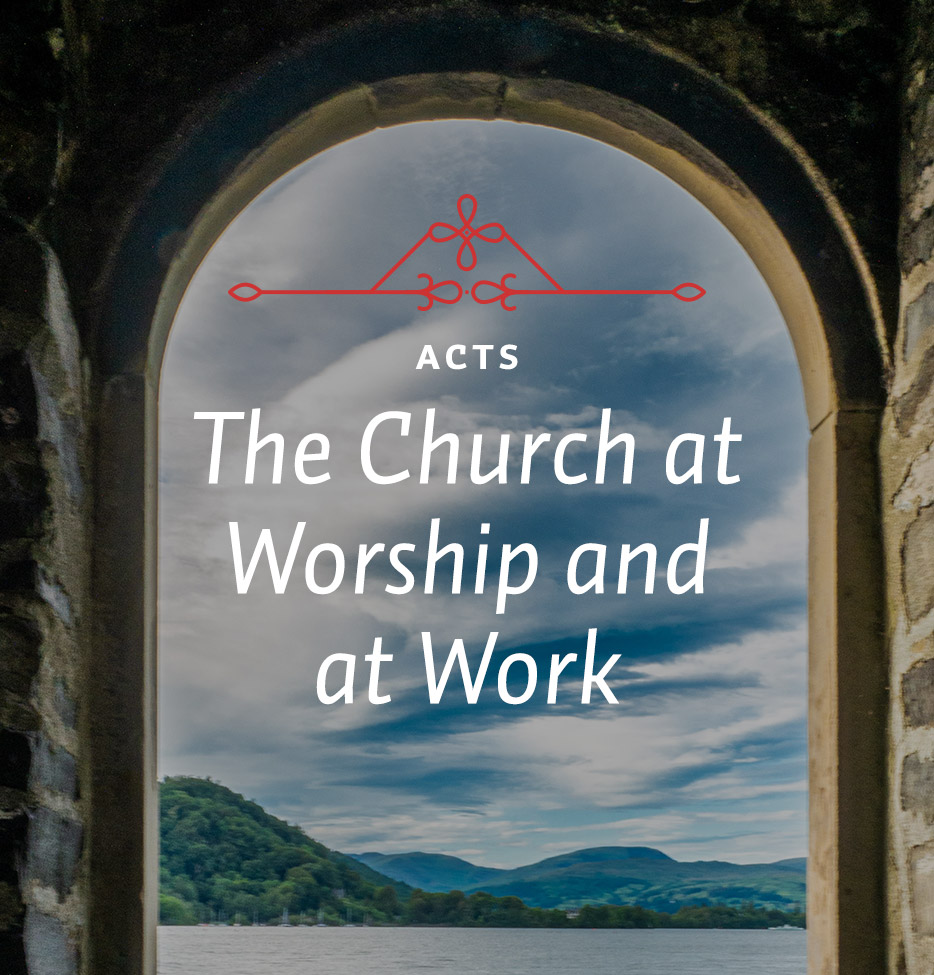The verses that came to the minds of the Christians in this important worship service were from Psalm 2. Psalm 2 is a great Messianic psalm, but this is the first time its words have appeared in Acts. The psalm is a record of human rebellion against God and God’s response to it, but it is the verses dealing with the rebellion itself that they cite: “Why do the nations rage and the peoples plot in vain? The kings of the earth take their stand and the rulers gather together against the Lord and against his anointed One” (Acts 4:25-26).
If you know this psalm well, you know what the leaders of the nations go on to say: “Let us break their chains… and throw off their fetters” (v. 3). They are saying, as Israel’s leaders did in the days of Jesus, “We will not have this man to rule over us.” They are shouting, as they did to Pilate, “We have no king but Caesar.” This is the very essence of sin. Sin is telling God, “I will not have you to be my Lord or my God. You can be God for somebody else, but not for me. You can be Lord for somebody else, but not me. I want to be my own god and lord.” That is what sin is. In this Old Testament psalm we have a classic expression of it.
Why do Peter, John and the others quote this psalm on this occasion? The answer is obvious. It comes to mind because this is precisely what the Sanhedrin had been doing. They had done it with Jesus. They had said, “We will not have this man as our king.” Now in Acts 4:32-33 they were doing the same thing with the disciples. They were saying, “We will not hear their testimony.”
Peter and John had been instrumental in the healing of a lame man. They gave glory to Jesus, saying, “It is by the name of Jesus of Nazareth… that this man stands before you completely healed” (v. 10). The Sanhedrin should have been most sensitive to spiritual things. They should have searched out the cause of the miracle and have given God the glory (since that is the way it happened). That was their duty as the spiritual leaders of the Jewish nation. But instead they simply said, “We forbid you to speak in that name anymore.” They did not want to hear the Gospel. So they forbade its proclamation.
If you know the second psalm, you also know what God’s response is to such arrogance. The rulers of the world are taking up arms against the Almighty—gathering up their weapons, missiles, tanks, and guns to fight God and cast off His claims. But what does God do? Does God tremble at the united opposition of the world? He does nothing of the sort. God laughs at them. This is the only place in the Bible where we are told that God laughs. “The One enthroned in heaven laughs; the Lord scoffs at them” (Ps. 2:4). The Lord says, “Ha, ha, ha! Do they really think they can break my bonds?” Then He points to the Lord Jesus Christ and says, “I have installed my King on Zion, my holy hill” (v. 6).
As I say, it is perfectly evident why the early church thought of this psalm and chose its words to praise God on this occasion. The Sanhedrin had said, “We’ll get rid of Jesus. We’ll kill Jesus. We’ll do away with His influence.” But God raised Jesus from the dead, brought Him to heaven, and then seated Him upon His holy hill of Zion. He made Him King of kings and Lord of all the earth. Now the rulers were starting down the same path with the disciples. They said, “You can’t preach in the name of Jesus.” But the disciples replied, “God is going to exalt Jesus; you can’t do anything about it. As for us, well, we will praise Him for what He will do.”
Notice that the prayer begins with the words, “Sovereign Lord.” This is the first time in Acts that a prayer has been begun in this way. Why? Because that is exactly what needed to be said in praise on this occasion. God is sovereign. Therefore, it does not make any difference whether men and women like His decisions. God does not ask their opinion. God is God. God is in charge, and it is His deepest determination to exalt Christ. These early Christians were saying, “How marvelous this is! How wonderful to know that by the grace and power of God those who believe on and follow Jesus Christ are on the winning side!”
Someone might say, “But they put the apostles in jail.” True, they did put them in jail. Someone says, “They put them in chains.” Yes, they also put them in chains. “And they threatened to kill them.” Yes, and not only that; they did kill some of them eventually. But Jesus was and is upon the throne. He is the King. He is ruler in Zion. Servants you can bind, but the Word of God is not bound. And that unleashed, unbound, powerful Word of the Gospel reached out from Jerusalem, that remote city of the Roman Empire, to permeate and eventually to transform the entire world.






